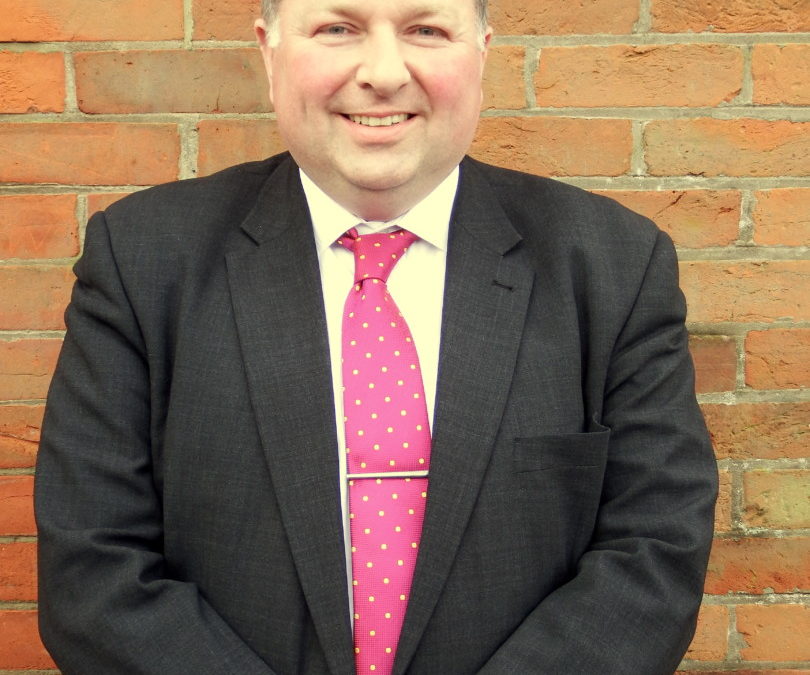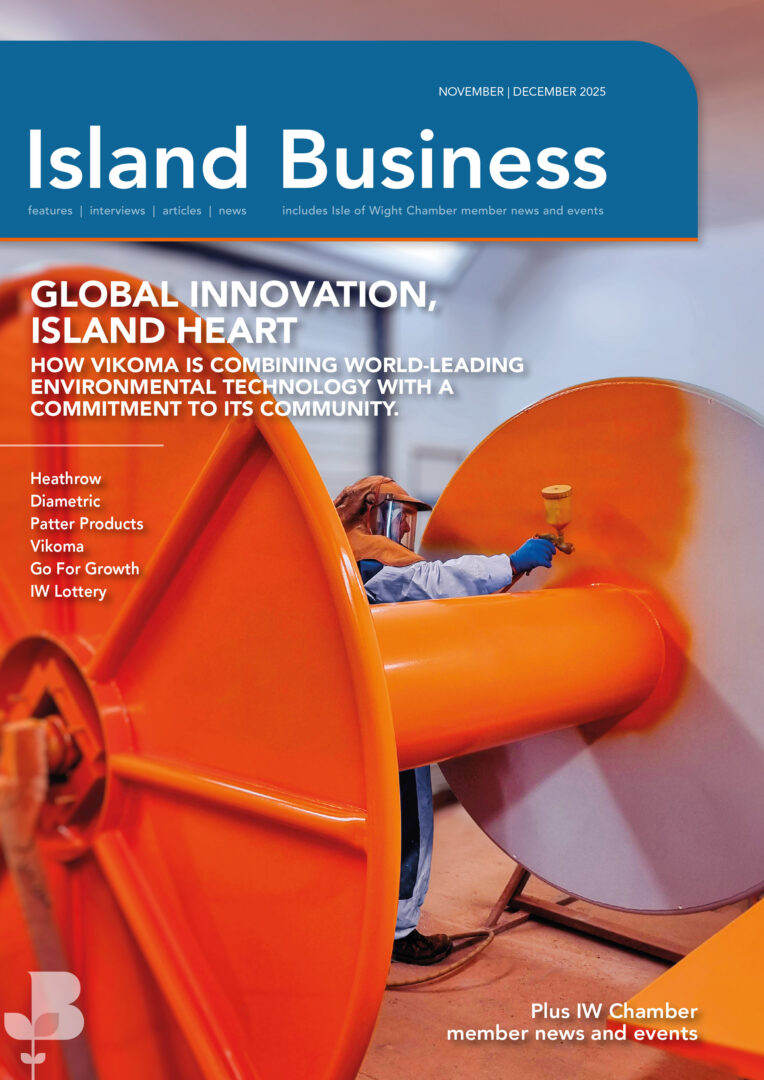Alan Limb is a licensed insolvency practitioner at BRI Business Recovery and Insolvency, where he works with companies and businesses in financial difficulty. He moved to the Island in 2008 and now sits on the Chamber Of Commerce board. He’s also a mentor for the Prince’s Trust. He talks to Tom Stroud.
In a nutshell, what do you do?
I help businesses in financial difficulty, on the Island and on the mainland, at their place of work. We’re often brought in by a company’s existing advisors because the business is running short of cash. We aren’t tax specialists or accountants. We have to establish the reason that the company is short of cash and try to help them overcome it.
This week I was working with a company that isn’t making any money and has twice the number of employees that they actually need. They have never managed underperformance and to cover for the fact that people aren’t working hard enough they’ve employed more people. That’s why they’re in the state they’re in. No matter what you do to help them with their business, if they can’t manage staff effectively then they will always have the same problem.
When you’re called in, is it usually the end of the road for a business?
No it isn’t and it doesn’t need to be. All too often it is, because people haven’t done something soon enough. They know that something is going wrong and it might be a new experience for them. They don’t take the time and trouble to recognise the problem and seek help sooner. A lot of what keeps me busy is that people aren’t good enough at running their business overall. They’re very good at what they do, but they’re not so good at doing lots of other things that go along with running their business.
A lot of people are running a business because they used to be employed by somebody else, but doing the same thing. They then want to be their own boss. Let’s say you’re employed as a joiner, all you might have to do is concentrate on making tables. You don’t have to worry about negotiating with suppliers, customers, credit control or employing people and dealing with HR. Once you run your own business you still have to make tables profitably but you also have to deal with all the bureaucracy and admin that goes along with it. That’s something lots of people don’t understand and they don’t ask for help. If a company grows too quickly it can also get to the point where it isn’t structured well enough to cope with its size.
So what you do starts with the bottom line but must quickly move from numbers to dealing with emotions too?
Yes, that’s true. You need to have passion but you need to look at things from a business and financial point of view. I meet a lot of people who are spending every waking hour working but the business has no money to pay them. A better alternative would, frankly, be to get a job stacking shelves at a supermarket. There’s a certainty of income and none of the stresses of running a business! It’s not as simple as that though – there’s always a lot of emotion and pride in running a business. Sometimes it’s a family firm and I can understand that nobody wants to be the person who made the business fail. There’s a lot of counselling in what I do – you have to gain confidences and have open and honest conversations with searching questions. Often my clients have never had those sorts of conversations before. They don’t feel they can share the problems that the business is facing with friends and family. They might not have established advisors or a good accountant so they haven’t been able to take a step back and look at things objectively.
How are things out there now, in your view? Are things getting better?
It’s been a strange few years. Although the economy has been doing pretty badly for the past six or seven years, businesses have been pretty resilient in surviving. There haven’t been as many formal insolvencies and as many businesses failing as you might think. Low interest rates have helped companies to manage their debts and stay within their borrowing facilities. Employees have been quite flexible too, working fewer hours or without pay rises or on a zero hours contract. The government has been generous too, offering companies more time to pay their tax then they perhaps deserved. Elections do create uncertainty and inflation is at 0% so prices aren’t going up and that can create problems too as consumers delay their spending.
Is it a tough time for people to start their own businesses?
You shouldn’t do it rashly and you have to go in with your eyes open. Before you start, make sure your business makes sense. Try and get some experience working in that industry. I’ve met a number of people on the Island over the last 7 years who have decided to buy pubs because they’ve spent lots of time in the pub in the past. They’ve come into money and they think that makes them good at running a pub – they’re possibly the worst people to run a pub, which is why they don’t succeed and don’t last long. If the business doesn’t make sense then don’t invest money in it in the first place.
Don’t just assume a business is going to be a success. It’s human nature, to a degree, but you have to be objective and look at it from the customer’s point of view. Is your business offering something that people will want to buy? You have to adapt too. I do think the Island has actually been cushioned from some of the things that the mainland has already had to deal with. We have supermarkets coming here now that are taking business away from established companies. ASDA will be selling all kinds of things, not just food, and there’s no great customer loyalty if prices are cheaper elsewhere. People will spend money at ASDA and businesses need to be aware of their market and keep their eyes open.
People often talk about the Island being a different place to do business, or there being an “Isle of Wight mentality.” Do you see that?
Since 2008 BRI has probably helped 300 businesses on the Island. I think the Island isn’t much different from the rest of the UK in that good businesses are doing well and poor businesses are struggling. The Island isn’t just care homes, hotels and seasonal businesses. The Chamber Awards clearly show that there are lots of successful businesses here but we don’t always know about them. What they sell is high tech and their market isn’t on the Island, often on the other side of the world. A lot of these specialist businesses are very profitable and there’s a lot of success here.
Some Island businesses can see their market as being restricted to just the Island. They’re reluctant to seize opportunities on the mainland. Business might actually be easier there and it isn’t as intimidating as you might think. For me there isn’t enough work to keep me occupied on the Island which is why I split my time here and on the mainland. My office is in Southampton but I try and spend as much time here as possible. BRI is a part of the Island’s economy and we trade on our reputation for helping people.
So if there was one key message that businesses could take away from this, presumably it would be “take advice”?
I think so. Nobody goes into business expecting that they’ll need my help. You can set up your own business without any qualification at all. If you’re not an accountant or HR expert you can get someone to do those things for you. You don’t have to spend a lot of money to put simple procedures in place to see how your business is doing. If every business was well run then I’d have to find something else to do for a living! The phone wouldn’t ring and I wouldn’t be kept busy. Commerce isn’t a non-competitive sports day. There are always winners and losers and there are always people who do better than others. That’s just how life is.
First published in the May 2015 issue of Island Business Magazine.





